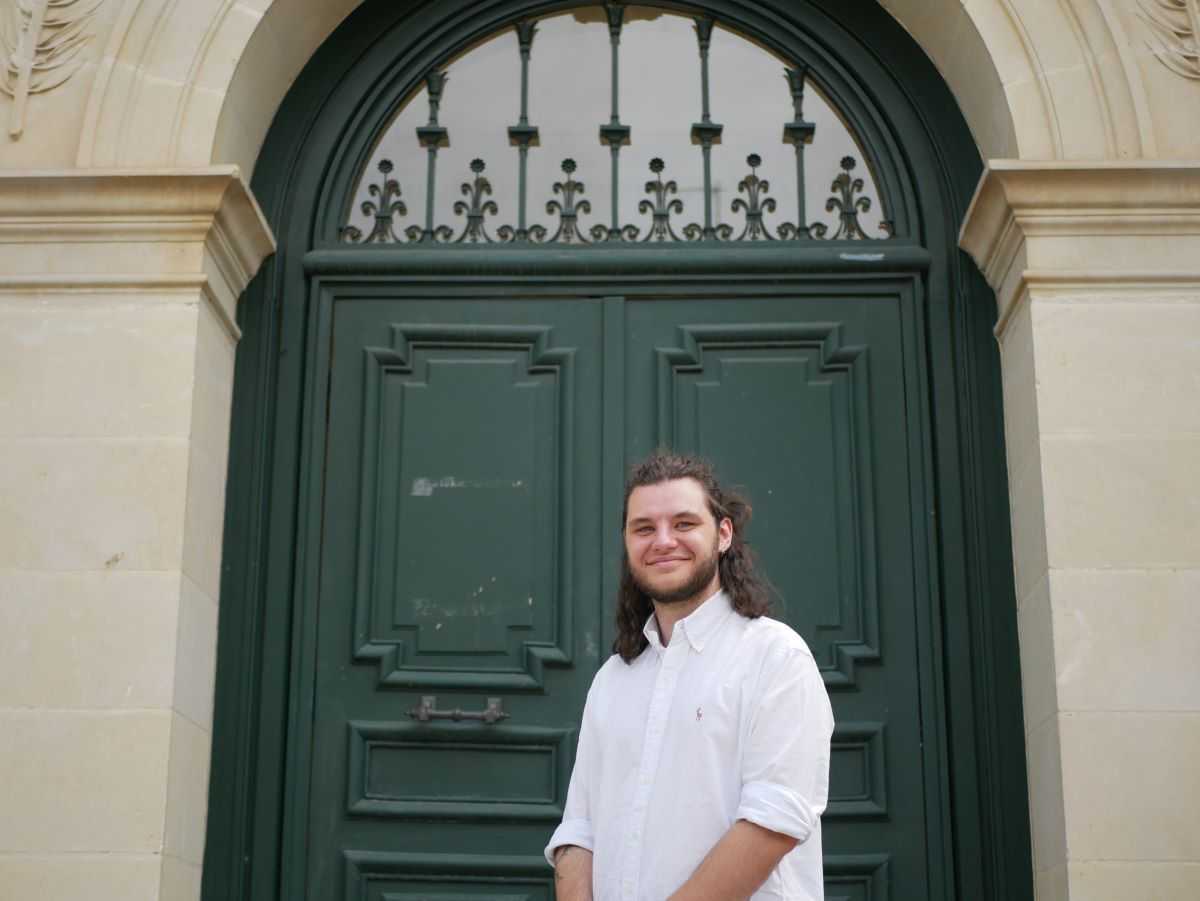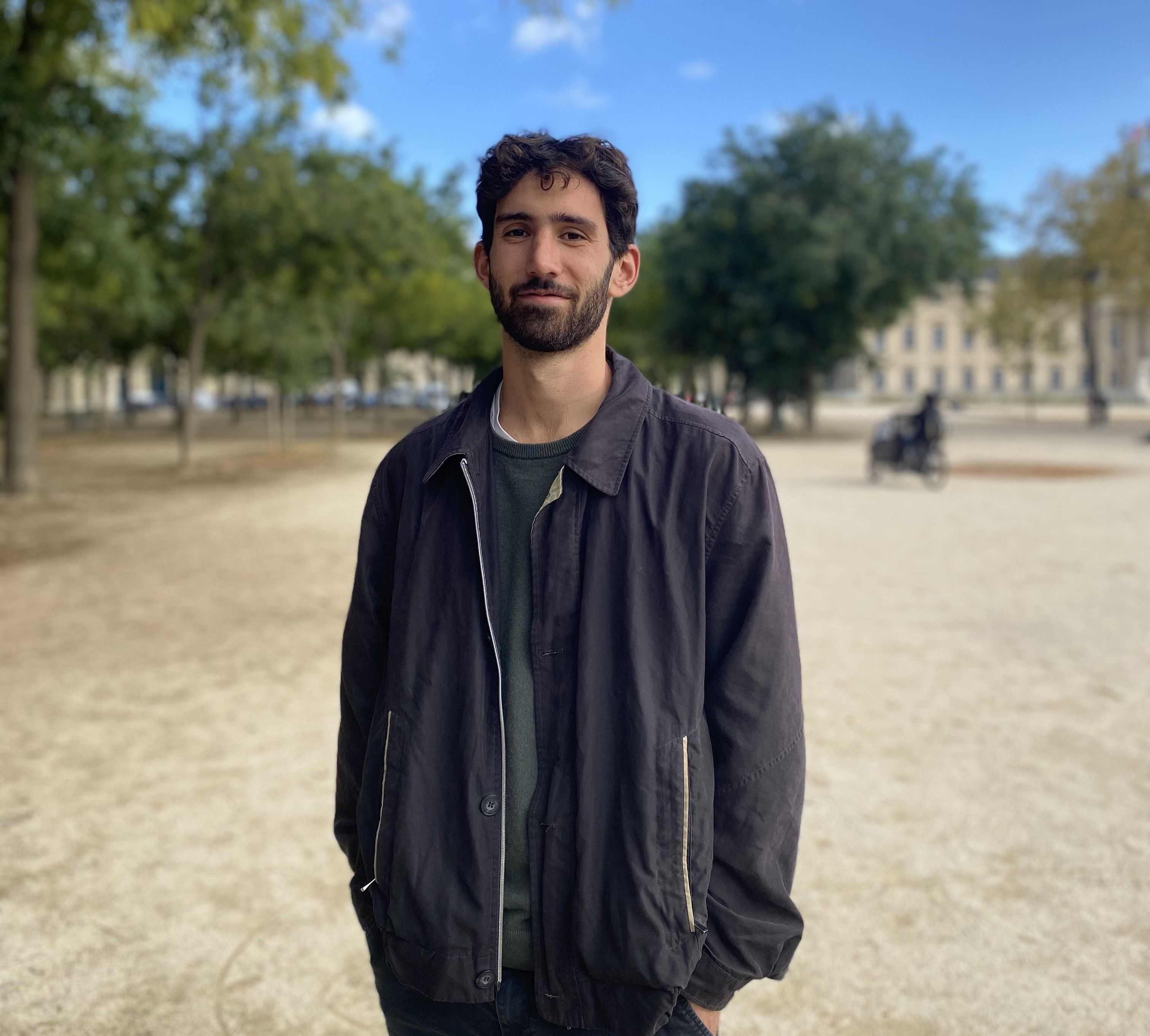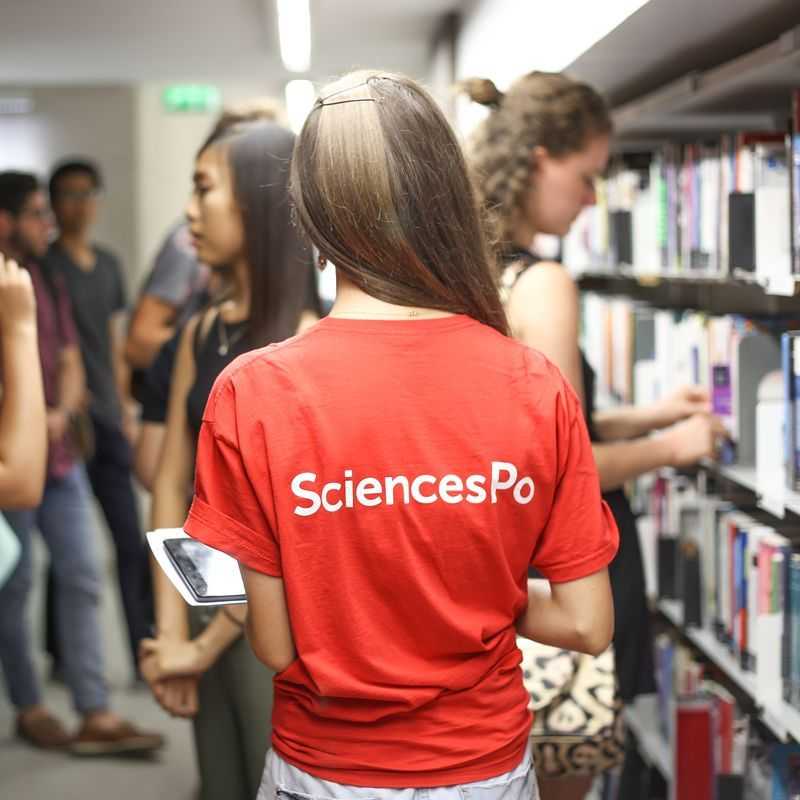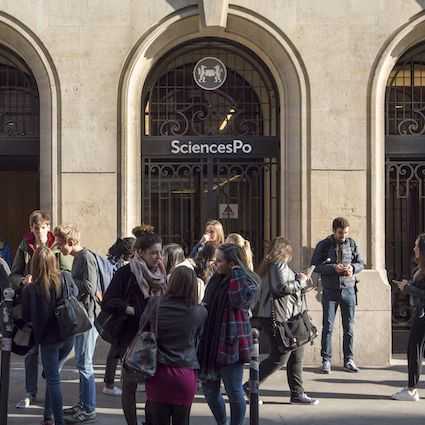
Home>Academics>Master Urban Governance, Policy and Planning>Governing Ecological Transitions in Cities Track
Master: Governing Ecological Transitions in Cities Track
Track offered as a part of the Master Urban Governance, Policy and Planning
Information Sessions: Masters

Discover all the Master's programs offered by our 8 professional Schools at Sciences Po and explore the wide range of specialisations available during our webinars dedicated to applicants.
The Governing Ecological Transition in Cities Track is also open for apprenticeship.
LEADING THE ECOLOGICAL TRANSITION OF CITIES AND REGIONS
At the forefront of the climate and ecological crisis, cities must change everything, from mobility to housing, energy consumption to land use, to bring down CO2 emissions, adapt to a new climate, and foster biodiversity and human well-being. The Governing Ecological Transitions in Cities Track of the Master Urban Governance, Policy and Planning trains the professionals leading these transformations with an interdisciplinary curriculum and a focus on urban environmental governance.
OBJECTIVES AND SKILLS
- Understanding the role of cities and regions in the climate and ecological crisis, map the actors and the social and ecological processes at play.
- Learning strategies, leverages, and policy tools to steer the ecological transition of cities in Europe and the global north.
- Mastering the concepts and methods of the urban social and ecological sciences: quantitative and qualitative research, spatial analysis, environmental accounting, and carbon budgeting.
- Acquiring professional skills through hands-on, learning-by-doing methods: professional networking, public speaking, project management, and project reporting.
Programme structure
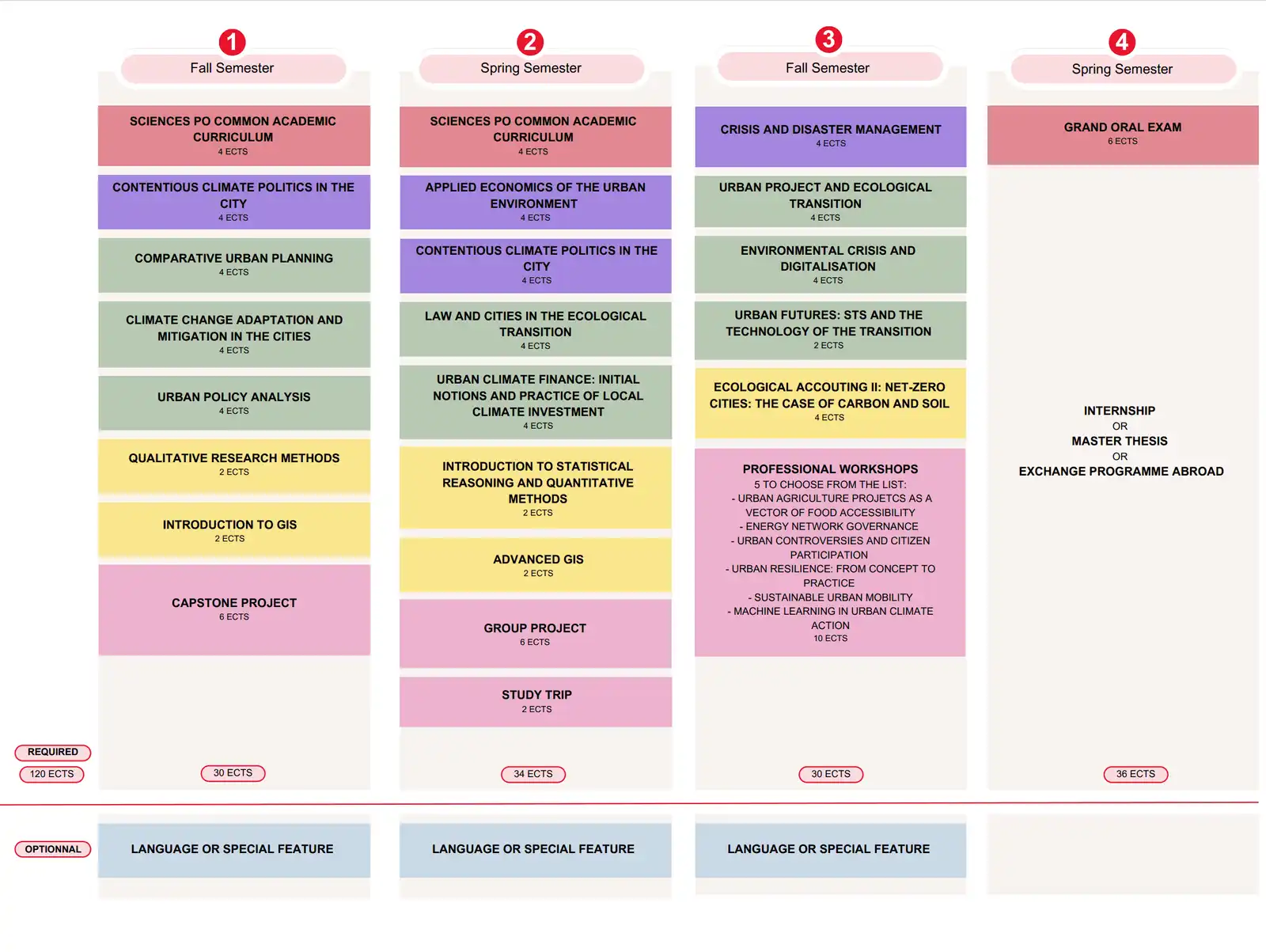
First year
During the first semester, students follow courses devoted to understanding the basics of urban policy and governance and the challenges of the ecological transition in Europe and the world. During the second semester, students learn to analyze cities as social and ecological systems and acquire essential tools to jumpstart and lead the transition.
During these two semesters, students also follow methodological workshops: GIS, (geographic information systems), statistics, and qualitative research methods. Throughout the year, students work on a practical, professionally-focused group project: the group project.
Second year
During the third semester, students complete and consolidate their knowledge of strategies, tools, and leverages to steer the ecological transition of cities and regions. They also hone their professional and technical skills through hands-on workshops (material and energy flow analysis, carbon budgeting) and elective courses on real-life work experiences in different sectors of the transition (energy, mobility, biodiversity, urban agriculture, circular economy…).
The fourth semester is given over to a professional internship of at least 14 weeks and preferably six months, supervised by the programme’s senior faculty. Students write an internship report at the end of the semester.
The students can also spend this semester on exchange at a partner university.
Second year in apprenticeship
The second year can be completed in a work-study programme: students complete two semesters alternating between Sciences Po and their employer.
The apprenticeship contract can begin as early as the second half of June, with the following schedule:
Third semester, from September to December, and fourth semester, from January to May: 3 days at the employer's premises (Monday, Tuesday, Wednesday), 2 days at Sciences Po (Thursday, Friday). Outside of class periods, apprentices work full-time at their employer's premises.
This program is offered in partnership with the CFA Formasup.
Study trip
First-year Master's students go on a week-long study trip to discover a region and understand its economic, social, environmental, and cultural dynamics. This trip offers a chance to engage with diverse stakeholders, including local elected officials, business representatives, associations, urban planners, and residents, and to explore development projects, infrastructure, third places, and public policies in action.
At the end of the trip, students write a collective report summarising their analyses and proposals on the challenges facing the region they have explored. Discover our latest trips to Bilbao and London.
Throughout their studies, students do field research on other occasions: during pre-term visits or as part of their group projects.
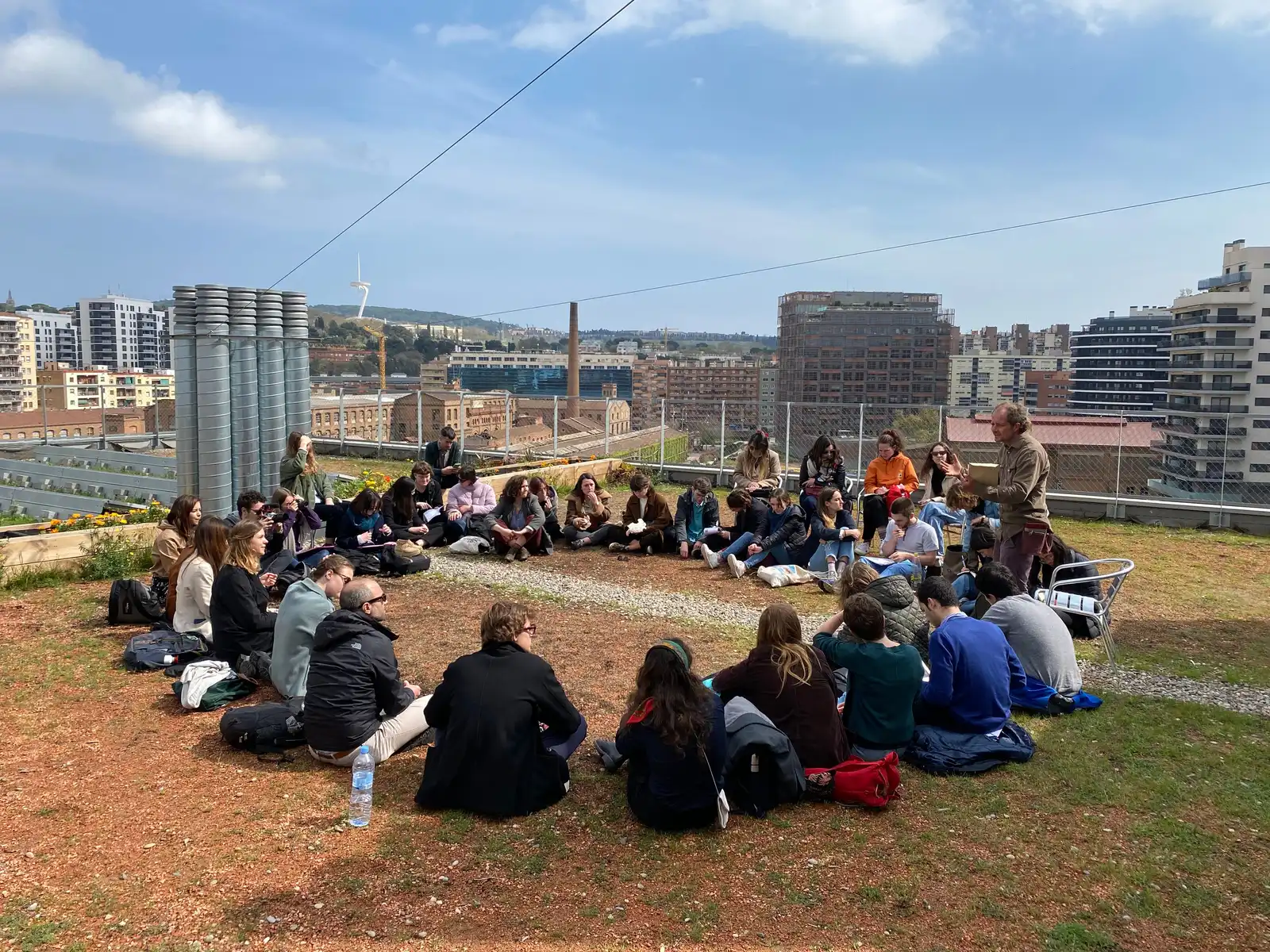
Course outlines
- First year, semester 1
- First year, semester 2
- Second year, semester 3
- Second year, semester 4
- Second year in apprenticeship, semester 3
- Second year in apprenticeship, semester 4
Note: Curriculum plans evolve every year to address various needs and developments.
CONCENTRATION (OPTIONAL)
Students who intend to do a PhD can begin a research concentration in sociology or political science since the second semester of the Master's programme (faculty in charge: Laurent Fourchard). The research concentration is organised in collaboration with the Sciences Po School of Research and open to every GETIC student in the second semester, but then it is submitted to a selection process by a joint committee of the Urban School and the School of Research at the end of the second semester. The selection is not based on a closed number of places, but on the skills of the applicant. Student’s grades, motivation and a preliminary research proposal are taken into account.
Students who intend to open their own start-up, or who want to acquire skills to work in a start-up, or who want to familiarize with open-management techniques for small-size enterprises on metropolitan topics can engage in the entrepreneurial concentration. It is organised in collaboration with the Sciences Po Entrepreneurial Center and open to every GETIC student in the second semester, but then it is submitted to a selection process by a joint committee of the Urban School and the Entrepreneurial Center at the end of the second semester. Students may take specific courses in the second and third semesters and join the Sciences Po incubator to receive support on management, financing and marketing around a valuable business project.
Career for change
The Governing Ecological Transitions in Cities Track offers strong career prospects in a growing sector of the European labour market, at the crossroads of urban planning & governance and ecological transitions.
Our graduates go on to work in the private, public or non-profit sectors in integration, strategy, development, design or management roles with a common goal: to tackle the climate and ecological crisis by transforming our cities and regions.
Recruiters include:
- local authorities, in particular the environmental agencies of urban and regional councils
- design, engineering and consulting firms specialising in environmental and climate issues, including lobbying and assessment
- European institutions
- large service firms
- non-profit organisations
- research centres
- city networks
Find out more about career opportunities after a Master's degree at the Urban School:
Student testimonials
Contacts
Academic Advisor : Cyriel Pelletier
Academic Assistant (M1) ; support for international students : Antoine Tisserant
Academic Assistant (M2) : Béatrice Susana - Delpech
